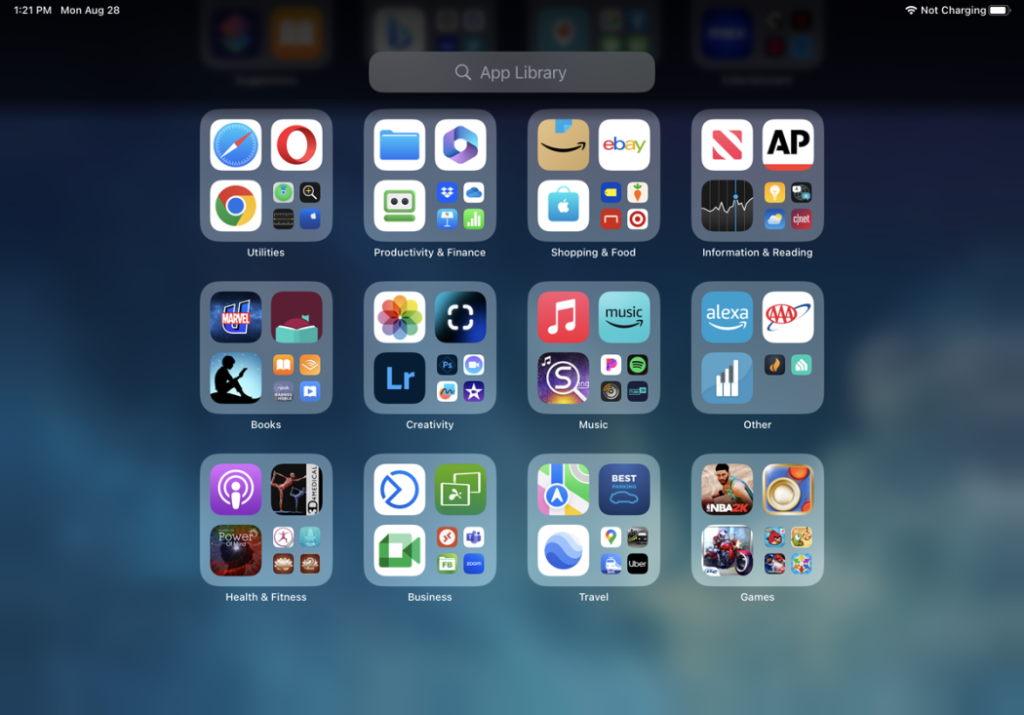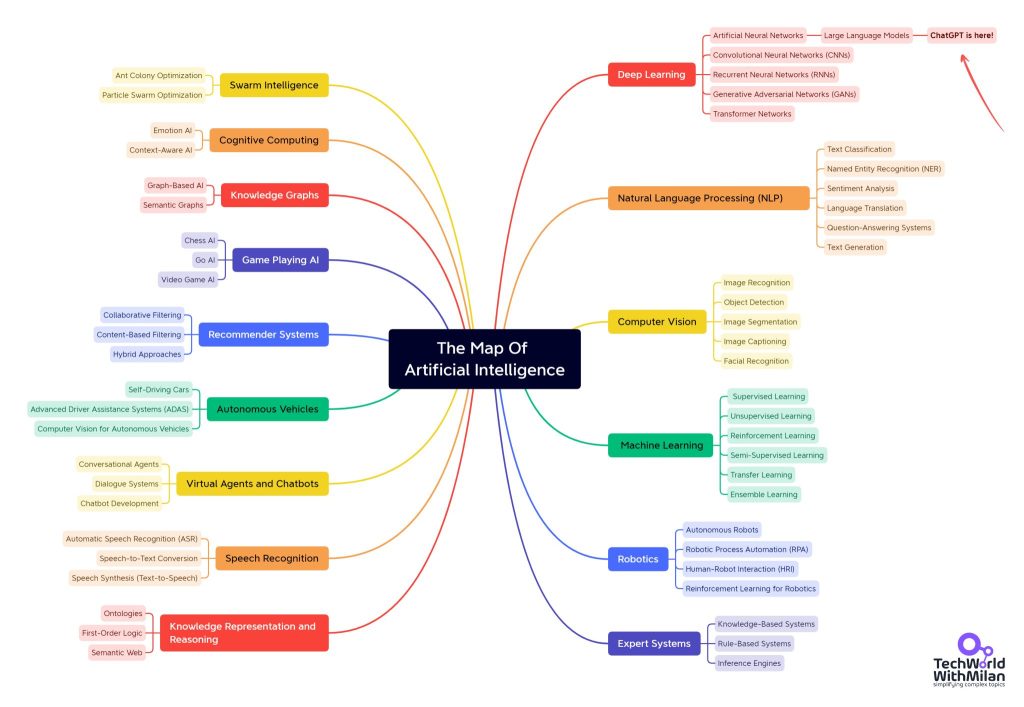Artificial Intelligence (AI) is becoming the secret ingredient that transforms ordinary mobile applications into extraordinary ones. This technology is greatly helping developers create apps that are functional, helpful, user-friendly, and delightful to use.
Using machine learning, NLP (natural language processing), and computer vision, developers can create intelligent, adaptive, and personalized applications.
From automating repetitive tasks to enabling predictive analytics, AI has greatly streamlined the development process, improved app performance, and fostered deeper connections between users and their digital experiences.
As AI technologies evolve continuously, their implementation into mobile apps will become seamless, driving innovation and redefining industry standards.
This guest post delves deeper into AI’s significant role in mobile app development. Let’s understand how it creates personalized, smarter, and more efficient applications.
Understanding the Synergy Between Artificial Intelligence and Mobile Apps
AI helps mobile applications understand, learn, and adapt to user behaviour, preferences, and needs. It’s about creating smart applications beyond ordinary functionalities to provide personalized, predictive, and proactive user experiences.
Knowing AI statistics and trends is essential to understanding what you can expect in the future and what alterations this technology has brought to the world.
Let’s understand the synergy between AI and mobile applications.
- Data is the Fuel: AI is like a curious mind that learns by experiencing the world. Our smartphones are like digital diaries filled with stories about our likes, dislikes, and behaviour. This technology reads these stories and gains insights that help it understand and respond better.
- Machine Learning: Machine learning is like teaching a computer to learn from experience. It’s like having a smart assistant who gets to know your tastes over time. For example, your shopping app can learn what you like by looking at what you buy, and then recommend similar items.
- Natural Language Processing (NLP): This technology enables apps to understand and respond to human language to make interactions more natural and intuitive. Virtual assistants and chatbots are the biggest examples of NLP.
- Computer Vision: This field allows apps to interpret and understand visual information from the world. This technology helps computers see and understand pictures. It is like giving computers eyes. They can recognize things in photos and videos, just like we do.
The Benefits of This Synergy
- Personalized Experiences: AI analyzes user data and tailors app content, recommendations, and interfaces to individual preferences, creating a more engaging and satisfying user experience.
- Enhanced Efficiency: AI can automate routine tasks, such as customer inquiries or data entry, allowing agents to focus on more strategic activities.
- Predictive Capabilities: AI can predict user requirements and proactively provide relevant information or services, improving user satisfaction and loyalty.
- Improved Decision-Making: AI-powered analytics provides valuable insights into user preferences, market trends, and business performance, enabling data-driven decision-making.
- Innovative Features: AI has unlocked new possibilities for app development, such as voice assistants, image recognition, and augmented reality. These help create more immersive and interactive user experiences.
In essence, apps collect more data, AI learns and analyzes that data, and the app becomes more intelligent, providing better user experiences and more valuable insights.
RELATED: Artificial Limits: Evaluating AI’s Potential to Transform or Disrupt Human Life
Key Areas of AI Impact in Mobile App Development:
AI is altering the landscape of mobile app development. This technology is impacting various aspects of the app lifecycle. Let’s delve deeper into the key areas:
Enhanced User Experience (UX)
AI is altering how we interact with mobile apps by delivering highly personalized and intuitive experiences in the following ways.
- Tailored Content: AI analyzes user behaviour, preferences, needs, and demographics to deliver highly relevant content. For instance, a news app shows articles based on the user’s reading history and interests.
- Personalized Recommendations: AI algorithms suggest products, services, or content based on individual preferences, likes, and past behaviour. Personalized recommendations are commonly seen in e-commerce, streaming services, and social media platforms.
- Adaptive Interfaces: AI can dynamically adjust the app’s interface to suit the user’s needs and context. For example, a fitness app might display different workout options based on the user’s fitness level and goals.
- Anticipating Needs: AI can predict user behaviour and preferences, which allows apps to offer proactive support. For example, a ride-sharing app might suggest the appropriate pickup location based on traffic conditions and the user’s daily routine.
- Personalized Offers: AI can provide timely and relevant offers by understanding user behaviour. For example, a retail app might suggest discounts on products the user has shown interest in.
- Improving User Flows: AI can analyze user interactions to identify pain points and optimize the user journey. This leads to smoother and more efficient app experiences.
- Natural Language Understanding: AI-powered chatbots and virtual assistants can understand and respond to user queries in simple and natural language, creating a more human-like interaction.
- 24/7 Support: Chatbots can provide customer support around the clock without getting tired, answer frequently asked questions, and resolve issues efficiently.
- Personalized Assistance: AI-powered assistants can offer personalized recommendations and guidance based on the user’s needs and preferences.
Accelerated Development and Efficiency
AI can streamline the entire mobile app development process, enhance efficiency, and get the app into people’s hands faster. AI accelerates app development and efficiency with
- Test Automation: AI-powered testing tools can automate various testing phases, including unit, integration, and UI testing. This significantly reduces manual work and accelerates the testing process.
- Code Generation: AI can generate code snippets or even entire code modules based on code patterns or given specifications. This can speed up app development and reduce the likelihood of errors.
- Build and Deployment Automation: AI can automate the process of building and deploying an app to ensure consistent and efficient delivery.
- Design Recommendations: AI-powered design tools can analyze user data and provide recommendations for improving the app’s interface and experience. This helps in creating more effective, intuitive, and user-centric designs.
- Iterative Design: AI can automate design iterations, allowing developers to experiment with different design variations quickly and efficiently.
- Performance Monitoring: AI monitors app performance constantly and identifies potential issues before they become big problems.
- Issue Prediction: AI analyzes historical data, predicts potential problems, and suggests preventive measures. This helps maintain app stability and reduce downtime.
Data-Driven Insights and Decision Making
AI is transforming how businesses extract value from data, allowing businesses to make data-driven decisions that drive growth and efficiency. AI helps businesses to:
- Understanding User Needs: AI can analyze vast amounts of user data to identify patterns, preferences, and pain points. This information greatly helps to understand user needs and tailor the app accordingly.
- Predicting User Behavior: AI analyzes historical data and predicts user actions and preferences. This allows businesses to anticipate needs and offer relevant suggestions.
- Identifying High-Value Users: AI can identify high-value users based on their behaviour and spending patterns to enable targeted marketing and retention efforts.
- Competitive Intelligence: It can analyze competitor data to identify market trends, strengths, weaknesses, and opportunities.
- Customer Sentiment Analysis: AI can analyze social media and customer reviews to understand customer sentiment and feedback towards the brand and its competitors.
- Market Segmentation: It can identify customer segments based on demographics, behaviour, and preferences, enabling targeted marketing campaigns.
- Automated Testing: It can automate A/B testing processes. AI can test multiple variations of app features to determine the most effective options.
- Data-Driven Optimization: It analyzes test results to identify the best-performing variations to optimize the app continuously.
- Personalized Experiences: It can use A/B testing to create highly personalized experiences for user segments.
Innovative Features and Capabilities
AI is creating novel possibilities for mobile app development. This technology has enabled the creation of truly innovative and engaging experiences. It helps in
- Visual Search: Users can search for products or information based on images, such as taking photos of an item to find similar products online.
- Image-Based Recommendations: Apps can analyze images to provide relevant recommendations. For example, a fashion app might suggest clothing items based on an image of an outfit.
- Voice Assistants: Users can interact with apps through voice commands, making it easier to perform tasks and access information.
- Real-time Translation: It can translate speech or text in real-time, enabling seamless communication across language barriers.
- Chatbots and Virtual Assistants: AI-powered chatbots can engage in natural conversations with users, providing support, information, and the ability to complete tasks.
- Sentiment Analysis: Apps can analyze text to understand user sentiment. This enables businesses to improve customer service and product offerings.
- Text Summarization: It can generate short summaries of lengthy text, making it easier for users to read and consume information.
- Augmented Reality (AR): It can bring digital worlds into our real lives using AR. It’s like adding a cool, informative layer on top of what we see, making things more interesting and useful.
- Object Recognition: Apps can identify objects in images or videos. This enables features like image tagging, product identification, and visual search.
- Facial Recognition: It can recognize and verify individuals based on facial features, enhancing security and personalization.
Wrap Up
Analyzing vast amounts of data enhances user experiences through personalization, predictive analytics, and conversational interfaces. It accelerates app development by automating tasks, optimizing design, and enabling predictive maintenance.
Additionally, it provides invaluable insights into user behaviour and market trends, facilitating data-driven decision-making. Moreover, AI adds innovative features such as image and speech recognition, natural language processing, and computer vision, transforming the way users interact with apps.
In essence, AI is not just a tool but a strategic asset for businesses looking to create exceptional mobile experiences. It’s driving efficiency, innovation, and user satisfaction, redefining the possibilities of mobile app development.
While AI offers immense potential, addressing challenges such as data privacy, ethical implications, and the need for skilled AI professionals is essential. Additionally, organizations must invest in robust infrastructure and data management systems to support AI initiatives.


